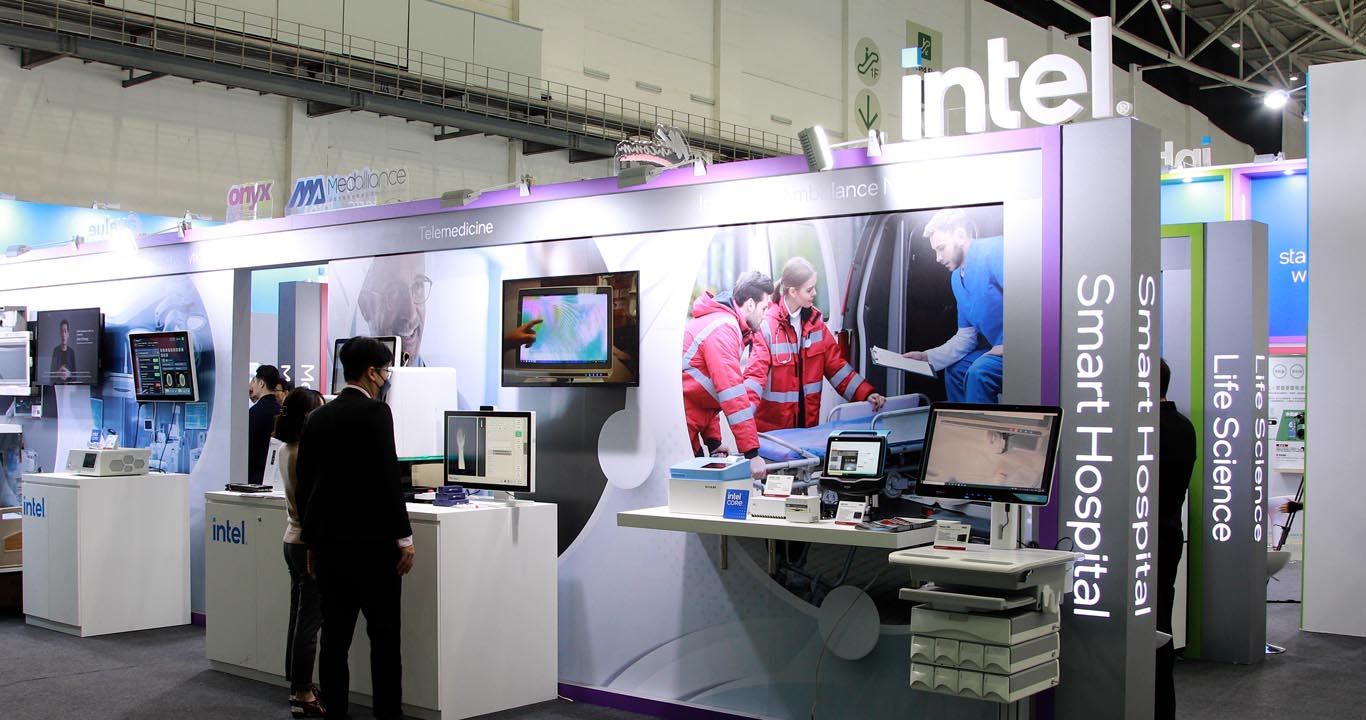In recent years, several technology giants, including Intel, have revealed the fruits of their extensive research and development efforts in AI technology, and thanks to years of dedicated work, they are now showcasing the numerous potentials and positive impacts that this technology can offer to humanity.
Beyond the generative AI that many of us use daily to assist with tasks, medical professionals are leveraging other AI technologies to enhance the current healthcare system. In fact, several demo booths hosted by Intel over at the Healthcare+ Expo 2023 Taiwan event did reveal all of this so let’s take a brief look at them.
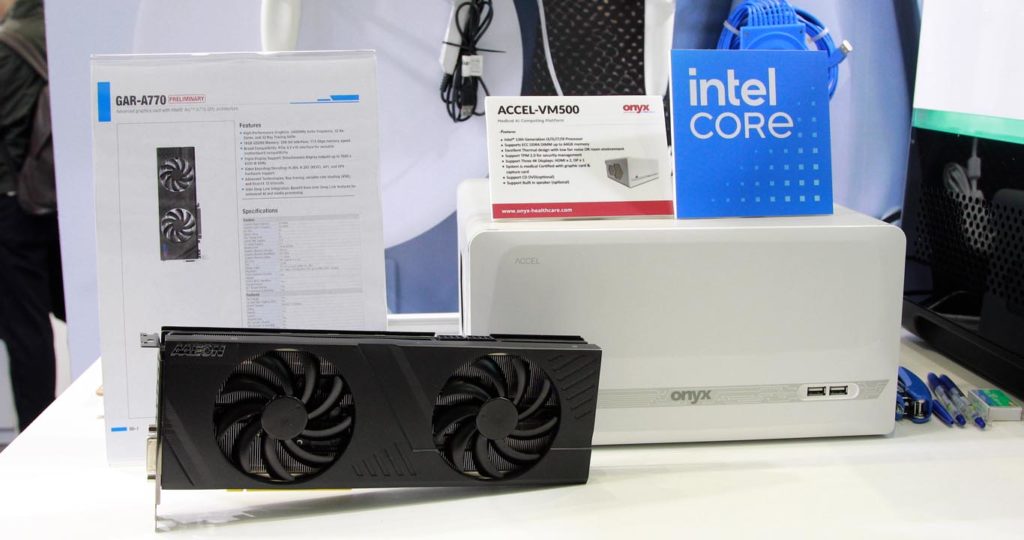 In the initial section of the booth, Onyx is utilizing Intel’s latest A770 GPU, specialized for tasks like 3D rendering, AI, and visualization, to enhance the capabilities of medical devices. Notable displays include the following:
In the initial section of the booth, Onyx is utilizing Intel’s latest A770 GPU, specialized for tasks like 3D rendering, AI, and visualization, to enhance the capabilities of medical devices. Notable displays include the following:
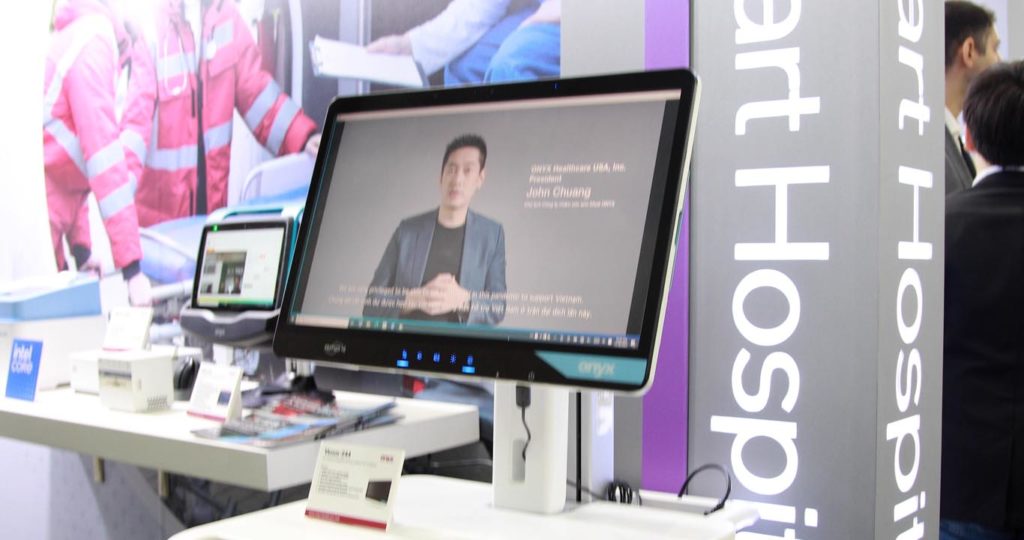 An ambulance network system facilitates real-time sharing of patient data with doctors, offering crucial information upon the patient’s arrival, especially in emergency situations. It also recommends the nearest hospital best suited to address the patient’s specific condition.
An ambulance network system facilitates real-time sharing of patient data with doctors, offering crucial information upon the patient’s arrival, especially in emergency situations. It also recommends the nearest hospital best suited to address the patient’s specific condition.
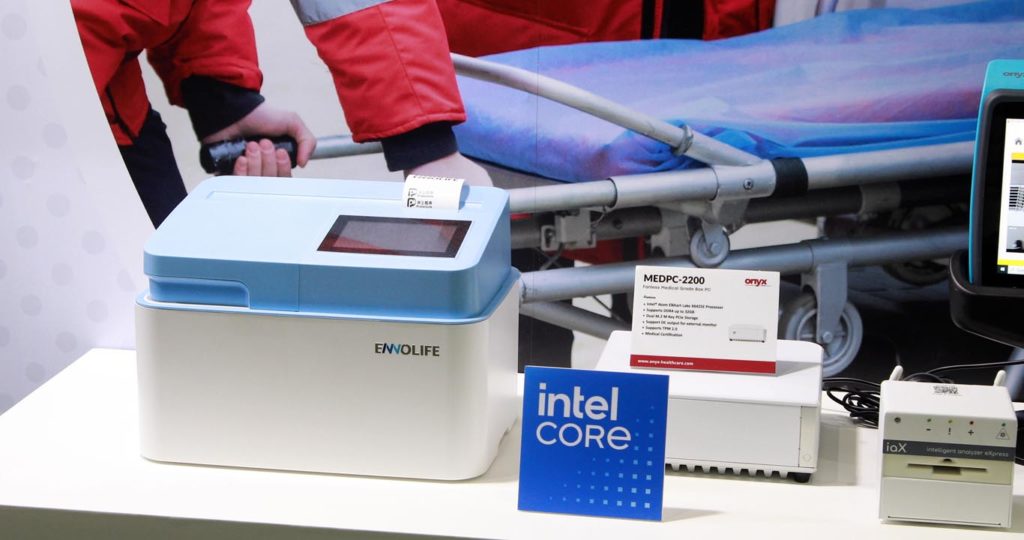 A telemedicine system allows families and patients to receive support from doctors and hospitals through a platform that serves as a global hub for healthcare professionals to share information and engage in discussions. This enables a better understanding of the patient’s health condition and the provision of suitable treatment or medications remotely.
A telemedicine system allows families and patients to receive support from doctors and hospitals through a platform that serves as a global hub for healthcare professionals to share information and engage in discussions. This enables a better understanding of the patient’s health condition and the provision of suitable treatment or medications remotely.
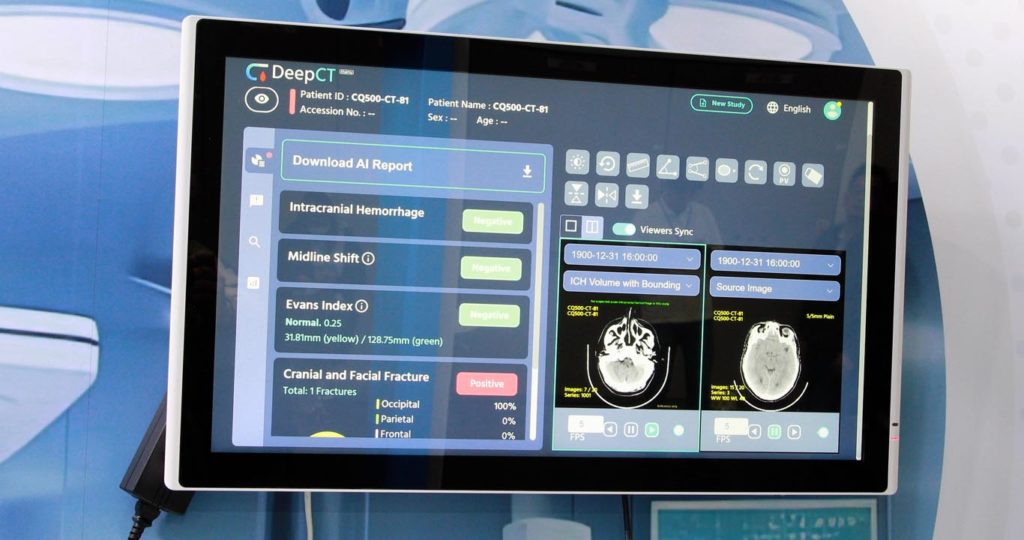 Surgical AI Imaging by Onyx, swiftly detects brain conditions from CT scans and MRI results within 30 seconds, a significant improvement over the traditional process that typically takes several hours with human analysis. FDA-approved and boasting an impressive accuracy rate of up to 95%, it represents a groundbreaking advancement in medical imaging.
Surgical AI Imaging by Onyx, swiftly detects brain conditions from CT scans and MRI results within 30 seconds, a significant improvement over the traditional process that typically takes several hours with human analysis. FDA-approved and boasting an impressive accuracy rate of up to 95%, it represents a groundbreaking advancement in medical imaging.
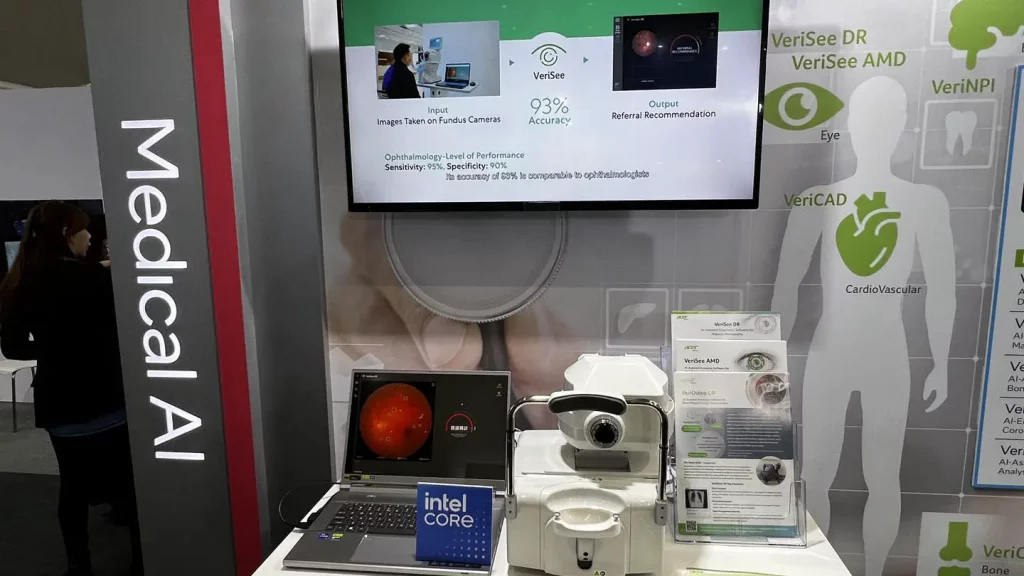 Meanwhile, at Acer Medical, their flagship product, the AI PC utilizing Intel’s cutting-edge Core products, is on display, specifically designed for enterprise environments like medical offices. According to Acer, its AI PC runs on finless cooling solutions and requires minimal maintenance, allowing the product to last up to 10 years.
Meanwhile, at Acer Medical, their flagship product, the AI PC utilizing Intel’s cutting-edge Core products, is on display, specifically designed for enterprise environments like medical offices. According to Acer, its AI PC runs on finless cooling solutions and requires minimal maintenance, allowing the product to last up to 10 years.
Everfortune AI, utilizing OpenVino to process ECG data, can be easily deployed on the Acer AI PC, resulting in greatly improved performance when tasks are executed. Acer Medical AI products focusing on health screening solutions are showcased, offering a plethora of AI-powered solutions in one system, saving space and costs while making advanced solutions more accessible.
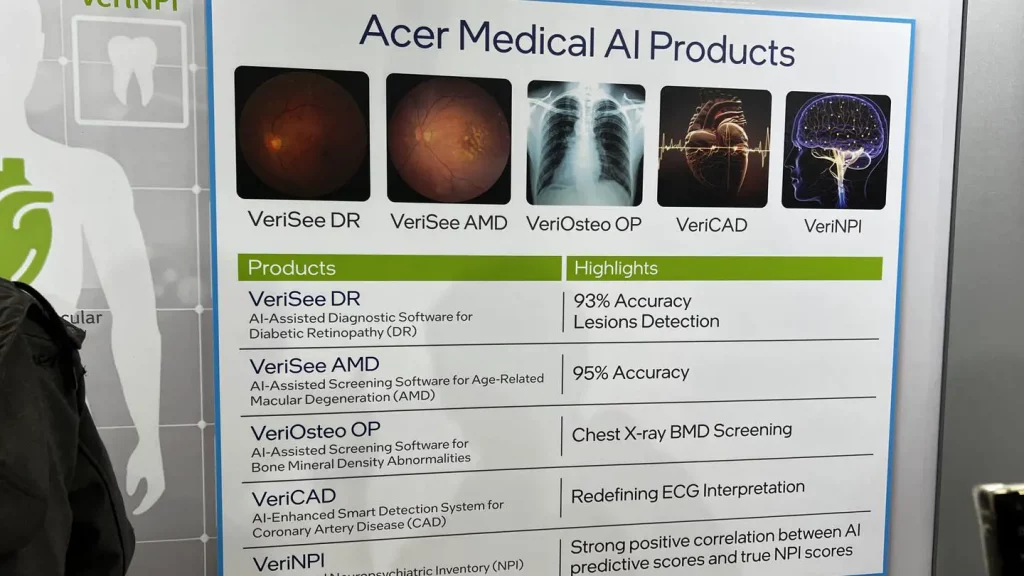 Wellgen, a key player in Cytology AI, software services, and education, collaborates with partners like Acer Medical to make cytology AI widely accessible using Acer AI PC. Powered by Intel OpenVino and OpenFederated Learning, this technology allows researchers, pathologists, and students to conduct pathology viewing and receive AI assistance at the edge.
Wellgen, a key player in Cytology AI, software services, and education, collaborates with partners like Acer Medical to make cytology AI widely accessible using Acer AI PC. Powered by Intel OpenVino and OpenFederated Learning, this technology allows researchers, pathologists, and students to conduct pathology viewing and receive AI assistance at the edge.
The integration of OpenVino and OpenFL modules enhances AI efficiency and secure collaboration for both AI inferencing and training, resulting in the cost-effective scaling of cytology AI through the partnership with Intel.
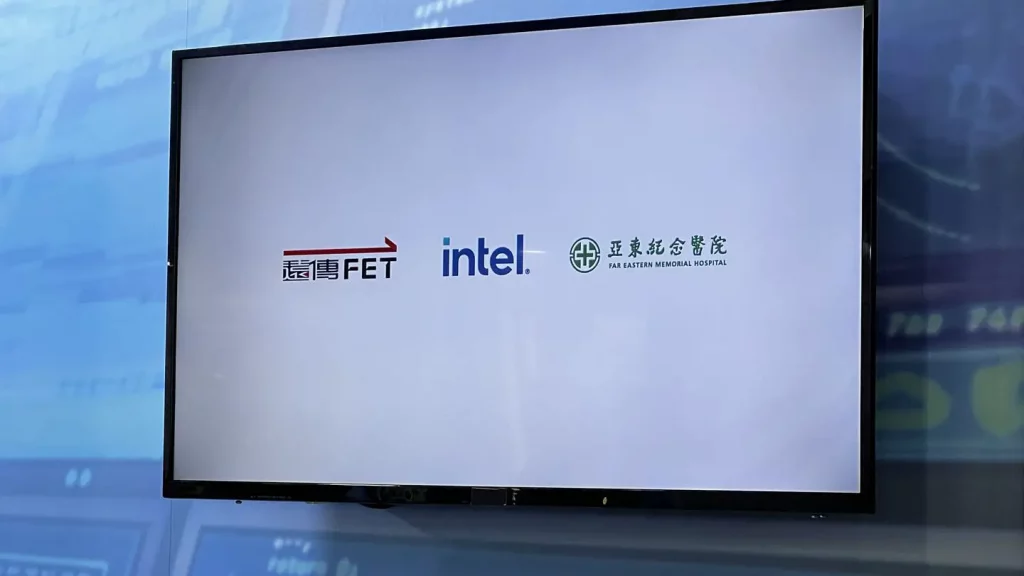 We were also introduced to an intriguing collaboration between Far EasTone Telecommunication and Intel to establish a 5G Sister Laboratory. This partnership extends to the Intel Rise Technology Initiative, deploying AI in Far Eastern Memorial Hospital to detect laryngeal cancer. The software infrastructure is hosted in the Far Eastern 5G Cloud, utilizing Intel’s Open Federated Learning framework from the Linux Foundation. Intel’s 4th Gen Xeon with AMX trains the Laryngeal AI model, allowing local training on standard Intel Servers in adherence to hospital data policies.
We were also introduced to an intriguing collaboration between Far EasTone Telecommunication and Intel to establish a 5G Sister Laboratory. This partnership extends to the Intel Rise Technology Initiative, deploying AI in Far Eastern Memorial Hospital to detect laryngeal cancer. The software infrastructure is hosted in the Far Eastern 5G Cloud, utilizing Intel’s Open Federated Learning framework from the Linux Foundation. Intel’s 4th Gen Xeon with AMX trains the Laryngeal AI model, allowing local training on standard Intel Servers in adherence to hospital data policies.
This secure AI model sharing is enabled through confidential computing with Intel SGX. Far East Tone emphasizes Intel’s commitment to scaling AI everywhere for healthcare advancements. In a related context, healthcare is evolving beyond hospital boundaries, discussed during a Medtex Keynote where Far Eastern Memorial Hospital employs AI, including Laryngeal Cancer AI, in collaboration with US-based hospitals like Vanderbilt University. The hospital uses Intel Xeon 4th Gen for efficient training, ensuring secure and confidential AI training between hospitals through Intel Open Federated Learning with Intel SGX.


